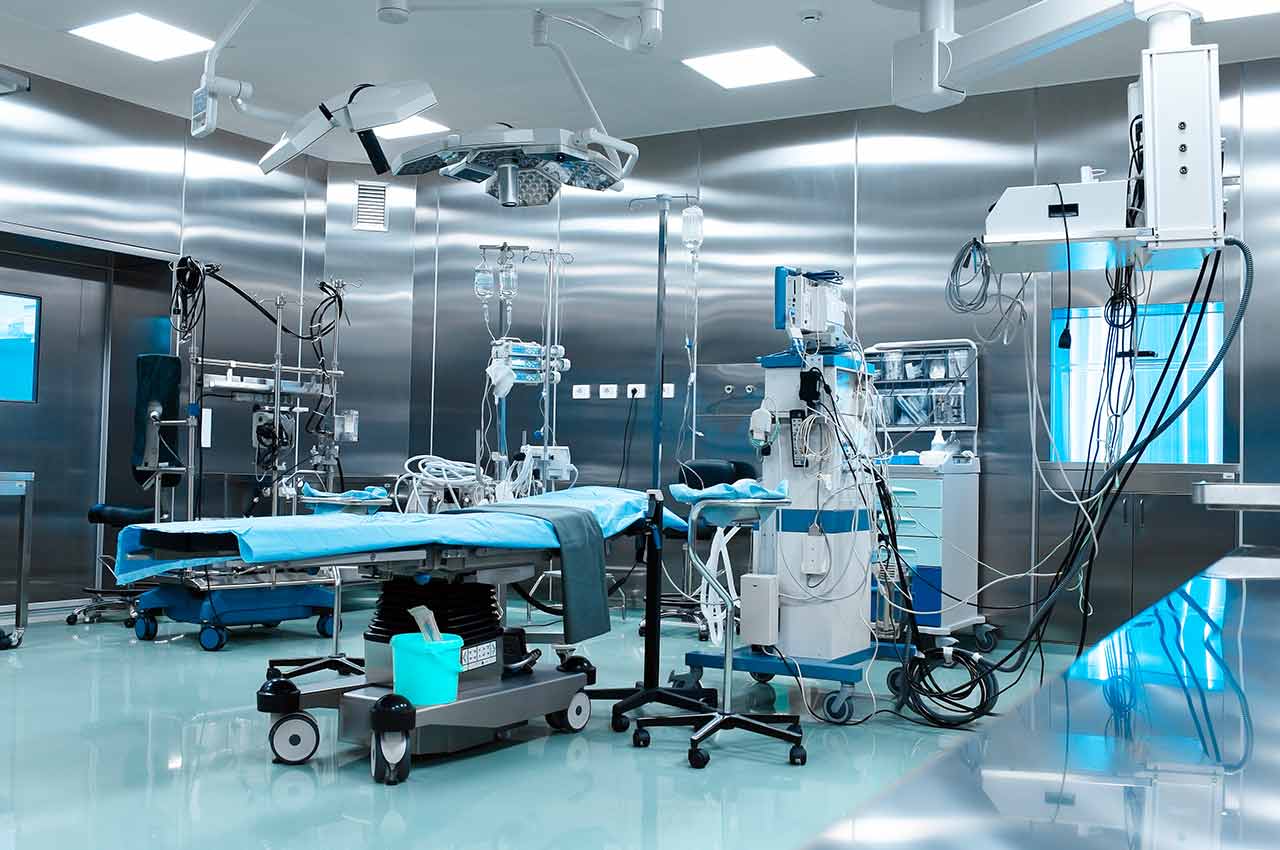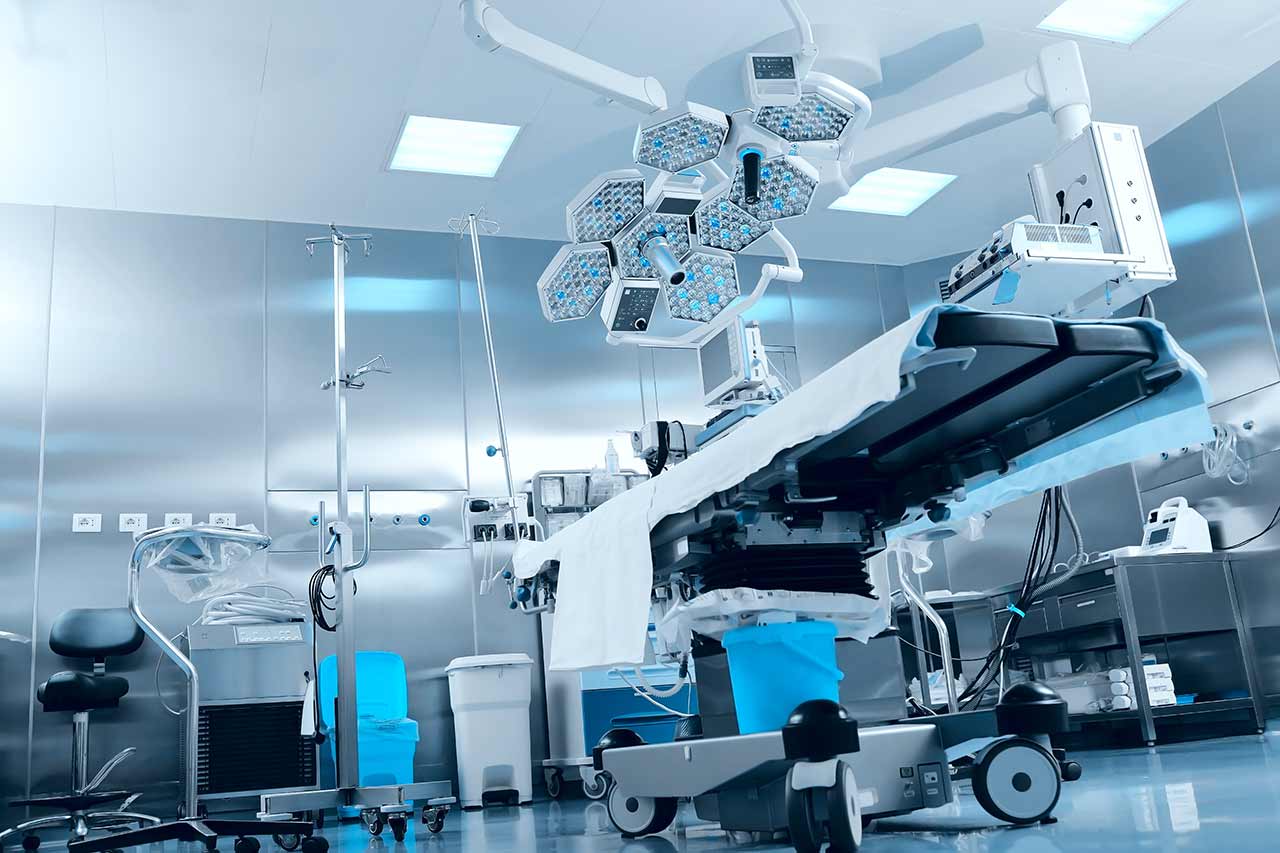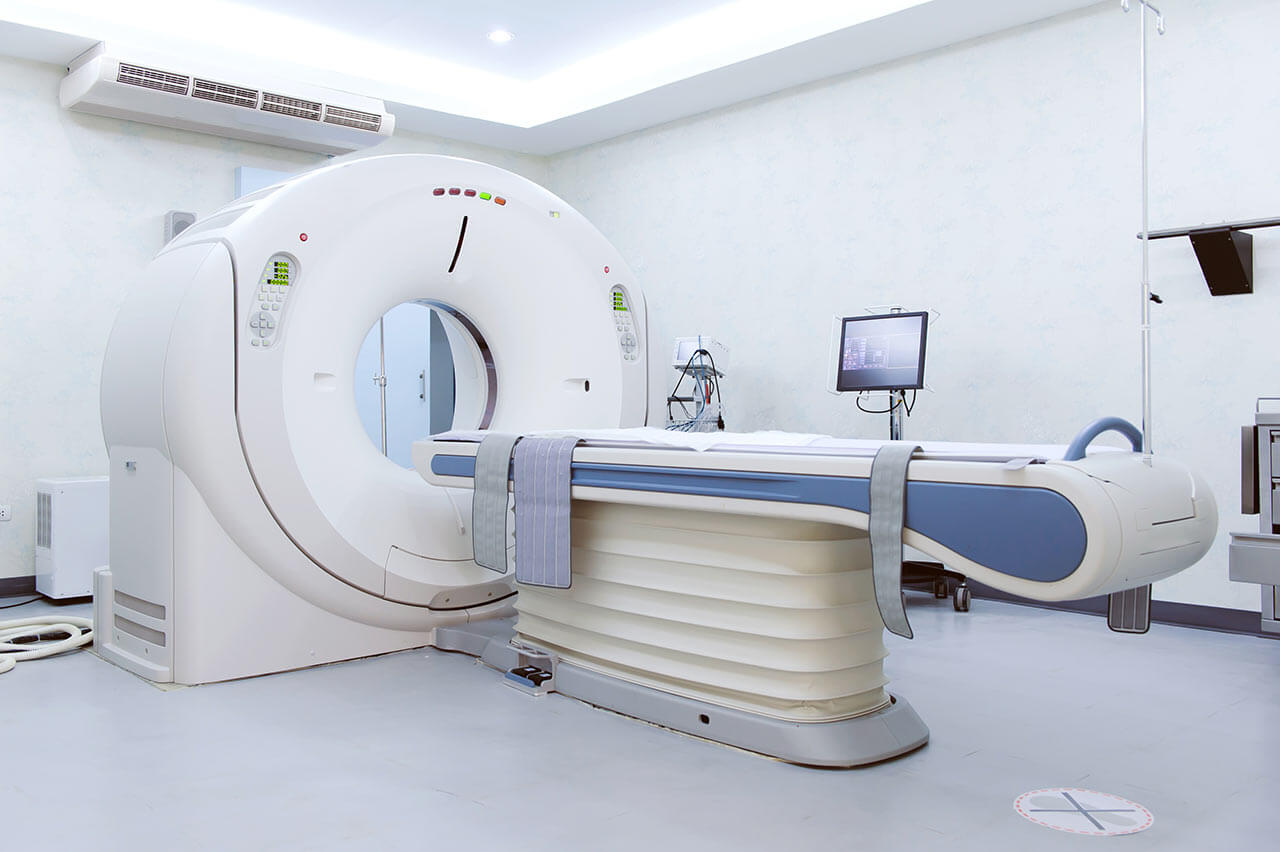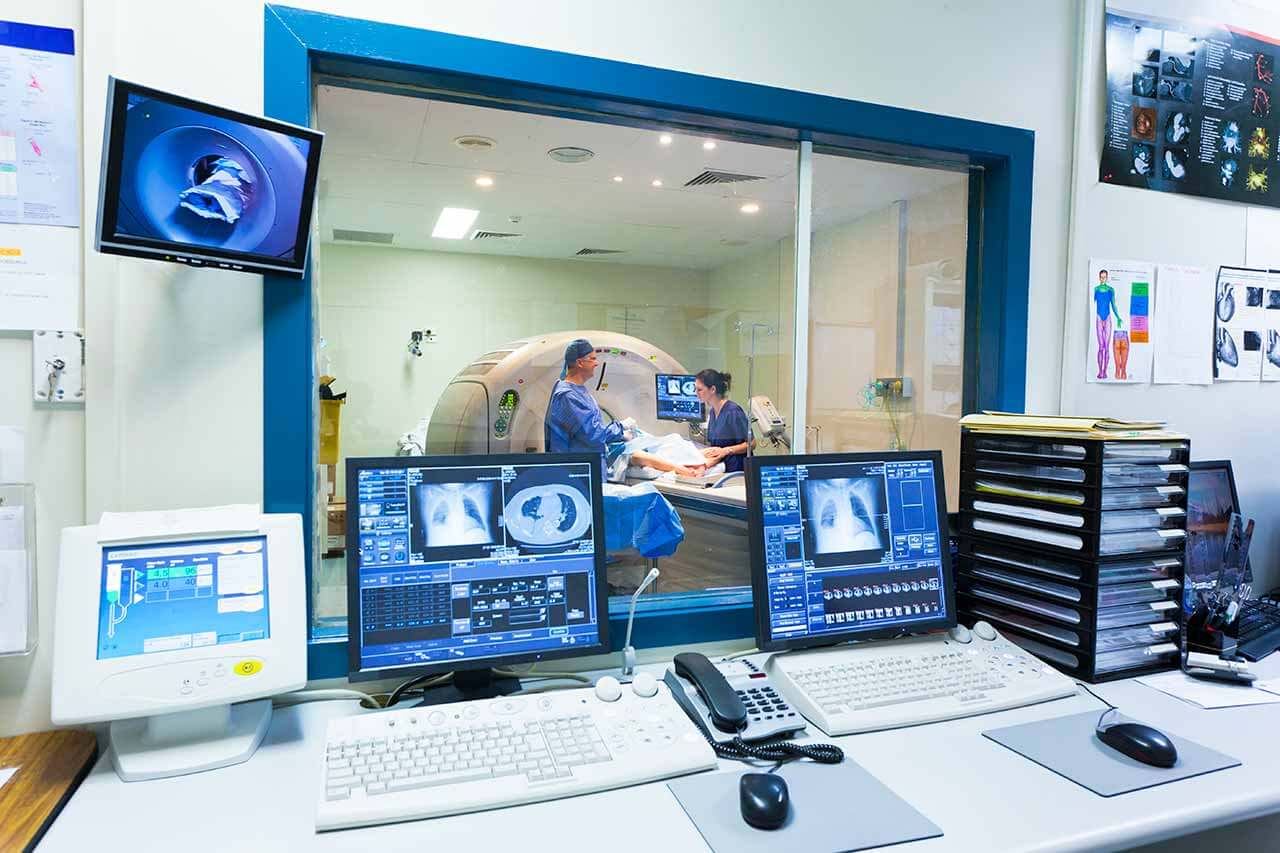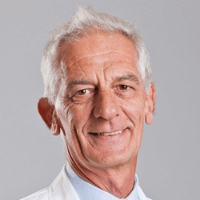
The program includes:
- Initial presentation in the clinic
- clinical history taking
- physical examination
- cardiac examination
- laboratory tests:
- complete blood count
- biochemical analysis of blood
- TSH-basal, fT3, fT4
- indicators of inflammation
- indicators blood coagulation
- measurement of arterial blood pressure
- ECG/ echocardiography
- coronary angiography
- symptomatic treatment
- control examinations
- cost of essential medicines and materials
- nursing services
- full hospital accommodation
- explanation of future recommendations
Required documents
- Medical records
- ECG (if available)
- Echocardiography (if available)
Service
You may also book:
 BookingHealth Price from:
BookingHealth Price from:
About the department
According to the prestigious Focus magazine, the Department of Cardiology and Angiology at the University Hospital Frankfurt am Main ranks among the top German medical facilities specializing in the treatment of heart diseases!
The department offers the full range of modern diagnostic and conservative therapeutic techniques for patients with cardiovascular diseases. The department houses a General Cardiology Outpatient Clinic, high-tech Cardiac Catheterization Laboratory and Emergency Cardiac Care Unit. The medical facility is also certified as an Interdisciplinary Center for Heart Failure and a Center for Transcatheter Aortic Valve Implantation. All this creates excellent conditions for the provision of highly professional and effective medical care. The department is headed by Prof. Dr. med. Andreas Zeiher.
To make an accurate diagnostics and develop an optimal treatment strategy, the department's cardiologists carry out modern diagnostic examinations. An important structural object of the department is the Cardiac Catheterization Laboratory. It offers all methods of invasive diagnostics of ischemic heart disease, pathologies of large blood vessels, myocardial diseases, heart valves, pulmonary circulatory disorders, etc. In addition, the doctors of the laboratory specialize in unique examinations, which are available only in the advanced medical centers in Europe, for example, intravascular ultrasound (IVUS), optical coherence tomography (OCT), intracoronary Doppler flow velocity and pressure measurements for the assessment of endothelial function, etc.
If necessary, doctors can perform medical invasive procedures, in particular, coronary artery interventions. An important focus of the Cardiac Catheterization Laboratory is the treatment of structural heart diseases, such as atrial septal defect and ventricular septal defect. Also, the department's doctors have exceptional experience in the field of catheter treatment of aortic stenosis and mitral valve insufficiency (MitraClip technique, mitral valve annuloplasty).
Of particular interest is the diagnostics and treatment of cardiac arrhythmias (electrophysiology). In order to eliminate these disorders, the doctors use the very latest techniques, such as cardiac resynchronization therapy, implantation of pacemakers, defibrillators, event recorders, cardiac contractility modulation systems.
The department's angiologists specialize in the diagnostics and treatment of patients with vascular diseases. All methods of non-invasive and invasive diagnostics of vascular pathologies are available here. One of the priority clinical interests is the treatment of patients with peripheral arterial occlusive disease.
The service range of the department includes:
Cardiology
- Diagnostic options
- Non-invasive examinations
- Resting and stress ECG
- Spiroergometry
- 24-hour Holter monitoring
- Diagnostics using an event recorder
- 24-hour blood pressure monitoring
- Orthostatic test (tilt test)
- Transthoracic echocardiography
- Transesophageal echocardiography
- Stress echocardiography
- Magnetic resonance imaging
- 6-slice CT scanner (with two X-ray sources)
- Invasive examinations
- Heart catheter diagnostics
- Left heart catheterization
- Right heart catheterization
- Intravascular ultrasound (IVUS)
- Fractional flow reserve measurement
- Endothelial function examinations
- Myocardial biopsy
- Electrophysiological examinations
- Carto 3D mapping technique
- Event recorder implantation
- Non-invasive examinations
- Therapeutic options
- Invasive treatment of cardiac pathologies
- Percutaneous transluminal coronary angioplasty (PTCA)
- Coronary stent implantation, including drug-coated stent implantation
- Minimally-invasive valve replacement, MitraClip technique in mitral valve insufficiency
- Left atrial appendage closure (left atrial appendage occluder)
- Closure of atrial septal defects, interventricular septal defects, open foramen ovale
- Stem cell therapy in acute infarction and coronary artery disease
- High-frequency and cryoballoon techniques for the treatment of arrhythmias, including atrial fibrillation
- Implantation of pacemakers and defibrillators
- Cardiac resynchronization therapy device implantation
- Cardiac contractility modulation in heart failure
- Conservative treatment of cardiac pathologies
- All modern pharmacological products, drugs and intensive therapy methods
- Invasive treatment of cardiac pathologies
- Other diagnostic and therapeutic options
Angiology
- Diagnostic options
- Duplex ultrasonography and continuous-wave Doppler of all blood vessels
- Determination of ankle-brachial pressure index
- Oscillography
- Treadmill ergometer
- Microcirculation assessment
- Percutaneous measurement of oxygen partial pressure
- Capillary microscopy
- Digital subtraction angiography
- Therapeutic options (minimally invasive techniques)
- Percutaneous transluminal coronary angioplasty (PTCA)
- Balloon angioplasty
- Angioplasty using special drug-coated stent implantation
- Implantation of vascular endoprostheses
- Recanalization in prolonged and chronic occlusions
- Local intra-arterial thrombolysis
- Therapy using autologous stem cells in stage III-IV peripheral arterial occlusive disease according to Fontaine classification
- Other diagnostic and therapeutic methods
Curriculum vitae
Education
- 1974 - 1981 Medical School, University of Freiburg.
- 1979 - 1981 Doctoral thesis.
- May 1981 Licence to practice medicine.
Professional Career
- 11.1981 - 03.1983 Resident, Department of Internal Medicine, Division of Cardiology, University Hospital Freiburg.
- 04.1983 - 02.1986 Clinical Fellow, Department of Internal Medicine, Division of Cardiology, University Hospital Freiburg.
- 03.1986 - 12.1987 Research Fellowship of the German Research Foundation (DFG) at Cedars-Sinai Medical Centre, School of Medicine, University of California, Los Angeles, CA, USA.
- 01.1988 - 09.1990 Clinical Fellow, Department of Internal Medicine, Division of Cardiology, University Hospital Freiburg.
- 01.1990 Associate Professor.
- 10.1990 - 05.1995 Director of the Section for Interventional Cardiology, Department of Internal Medicine, Division of Cardiology, University Hospital Freiburg.
- Since May 1995 Head of the Department of Cardiology and Angiology at the University Hospital Frankfurt am Main.
- 2002 - 2004 Chairman, Working Group on Interventional Cardiology, European Society of Cardiology.
- 2001 - 2006 Vice Chairman, Board of Directors at the University of Frankfurt.
Prizes and Honours
- 1991 Rudolf Thauer Award of the German Society for Heart and Circulation Research.
- 1995 Franz Loogen Prize of the Society of Heart and Circulation Research, Essen.
- 2001 Fritz Acker Prize, Fritz Acker Foundation, Bad Homburg.
- 2004 CARIM Lecture, University of Maastricht, the Netherlands.
- 2005 HJC Swan Professorship, Cedars-Sinai Medical Center, University of California, Los Angeles.
- 2006 Princess Lilian Professorship, Belgian Society of Cardiology, University of Brussels.
- 2007 Ernst Jung Prize.
- 2009 Paul Morawitz Prize of the German Society of Cardiology.
- 2009 Princesses’ Lecture, Victor Chang Cardiac Research Institute, Sydney.
- 2010 Award of the International Society for Cardiovascular Translational Research.
- 2010 Stanley Davidson Lecture, Royal College of Physicians of Edinburgh, Scotland.
- 2012 Krakoff International Lecture, Brigham and Women’s Hospital, Boston.
Research Interests
- Basic and clinical aspects of vascular biology and atherosclerosis.
- Role of stem and progenitor cells for endogenous cardiovascular repair, as well as their therapeutic application for regenerating cardiovascular function.
- Use of biomarkers for risk prediction and therapeutic stratification of patients with acute coronary syndromes.
Memberships in Professional Societies
- Fellow of the European Society of Cardiology.
- Past Chairman of the Working Group on Interventional Cardiology of the European Society of Cardiology.
- Co-Chairman of the Excellence Cluster Cardio-Pulmonary System (ECCPS) of the German Research Foundation (DFG).
Photo of the doctor: (c) Universitätsklinikum Frankfurt
About hospital
According to the reputable Focus magazine, the University Hospital Frankfurt am Main ranks among the top German medical facilities!
The hospital was founded in 1914 and today is a well-known German medical facility, which combines rich traditions and scientific innovations. A medical team of more than 6,500 employees cares about the health of patients around the clock, ensuring them with the highest standards of medical care and best possible safety.
The hospital has 32 specialized departments and more than 20 research institutes, which have all the necessary resources for the provision of the most effective care for any patient. The hospital has 1,488 beds for inpatient medical care. The medical facility diagnoses and treats more than 51,000 inpatients and about 44,800 outpatients every year. Due to the demonstration of outstanding treatment results, the number of patients seeking medical care here increases significantly annually.
The hospital presents all areas of modern medicine, whereas its special competence lies in neuroscience, oncology, cardiovascular medicine, cardiac surgery and other fields. Many treatment methods available here are unique not only in Europe, but also internationally.
Photo: (c) depositphotos
Accommodation in hospital
Patients rooms
The patients of the University Hospital Frankfurt am Main live in comfortable rooms made in modern design and meeting the highest standards of European medicine. Each room is equipped with an ensuite bathroom with a toilet and a shower. The standard room includes a comfortable, automatically adjustable bed, a bedside table, a wardrobe, a table and chairs for receiving visitors and a TV. If desired, patients can use Wi-Fi. The patients can also stay in the enhanced-comfort rooms.
Meals and Menus
The patient and his accompanying person have a daily choice of three menus. If for any reason you do not eat all the food, you will be offered an individual menu. Please inform the medical staff about your dietary preferences prior to the treatment.
Further details
Standard rooms include:
Religion
Religious services are available upon request.
Accompanying person
During the inpatient program, an accompanying person may stay with you in a patient room or in a hotel of your choice.
Hotel
During the outpatient program, you may stay in a hotel of your choice. Managers will help you choose the most suitable options.
